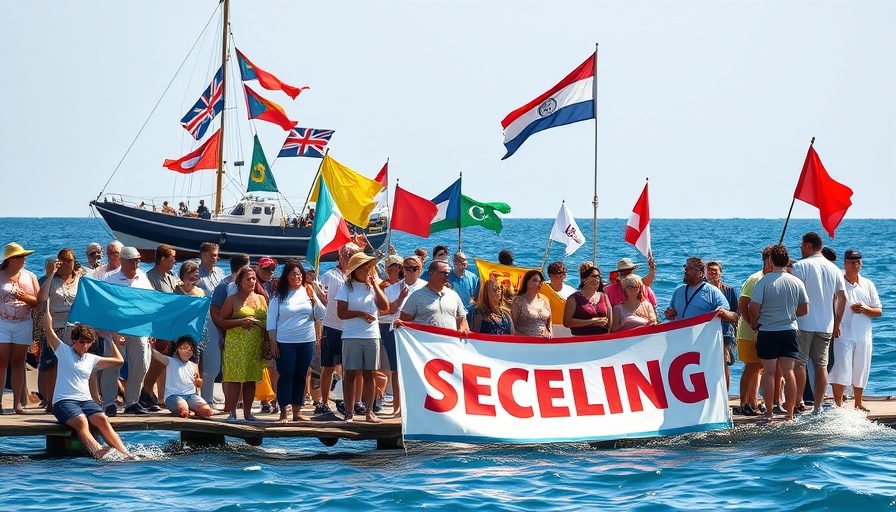
Greta Thunberg’s Humanitarian Quest and Israel’s Naval Blockade
The Mediterranean Sea is once again at the center of a dramatic humanitarian effort as the Madleen, carrying climate activist Greta Thunberg and several pro-Palestinian activists, seeks to deliver aid to Gaza. This comes in the wake of a continuing blockade imposed by Israel since 2007, which aims to quell the threats posed by Hamas, the militant group that has controlled the enclave for nearly two decades.
The Challenge of Humanitarian Aid in Conflict Zones
The current conflict, sparked by a Hamas-led attack on Israel in October 2023, has dramatically worsened conditions in Gaza. Israel's blockade has seen humanitarian supplies severely restricted, leading to reports of dire shortages and potential famine. Just recently, international aid organizations expressed grave concerns over the lack of relief assistance, especially vital supplies such as food and medicine.
The Madleen aims to breach this blockade with limited but essential supplies including baby formula, rice, and medical supplies. Despite being labeled as a symbolic effort, the Freedom Flotilla Coalition insists that such missions are crucial in raising awareness about the humanitarian crisis faced by Palestinians.
A History of Tension on the High Seas
This situation echoes a fraught history; a similar aid run ended in significant violence 15 years ago, resulting in loss of lives and international outrage. The Israeli military's commitment to using "any means necessary" to prevent the Madleen from reaching its destination raises important questions about freedom of movement and naval engagement in times of humanitarian crisis.
Thunberg's Influence and Global Reactions
Thunberg, recognized globally as a voice for climate issues, now adds a humanitarian aspect to her activism—demonstrating a multifaceted approach to advocacy. The involvement of a figure like Thunberg compels international attention to the issue, prompting calls for safety and respect for humanitarian efforts even amidst political strife.
Moreover, Thunberg's presence has garnered significant media coverage, placing a spotlight on the long-standing Israeli-Palestinian conflict, and drawing connections between environmental activism and humanitarian support.
What Lies Ahead: Future Predictions
As the Madleen inches toward Gaza, the situation is unfolding with both uncertainty and urgency. Should Israel proceed with military intervention, the repercussions could lead to an escalated international conflict, igniting protests and backlash against perceived human rights violations.
Future diplomatic efforts may hinge on how this event develops, potentially reshaping the landscape of humanitarian runs in conflict zones and the international community's approach to addressing the needs of vulnerable populations.
Why Should This Matter to Us?
This unfolding situation transcends borders, impacting not just those in Gaza but reflecting our shared global responsibility toward humanitarian rights and support. Engaging with these events prompts deeper reflection on our roles as global citizens, particularly how we prioritize aid, advocacy, and action.
By staying informed and advocating for humanitarian efforts, readers can foster a greater understanding of the political nuances at play and the importance of compassion in crisis management.
As the world watches the fate of the Madleen, it brings to light the fragility of peace and the urgent need for dialogue and understanding in pursuit of justice for all. This is an occurrence worth following closely, as it melds together the ongoing pandemic of inaction toward humanitarian aid with long-standing issues of war and conflict.
 Add Row
Add Row  Add
Add 




 Add Row
Add Row  Add
Add 

Write A Comment